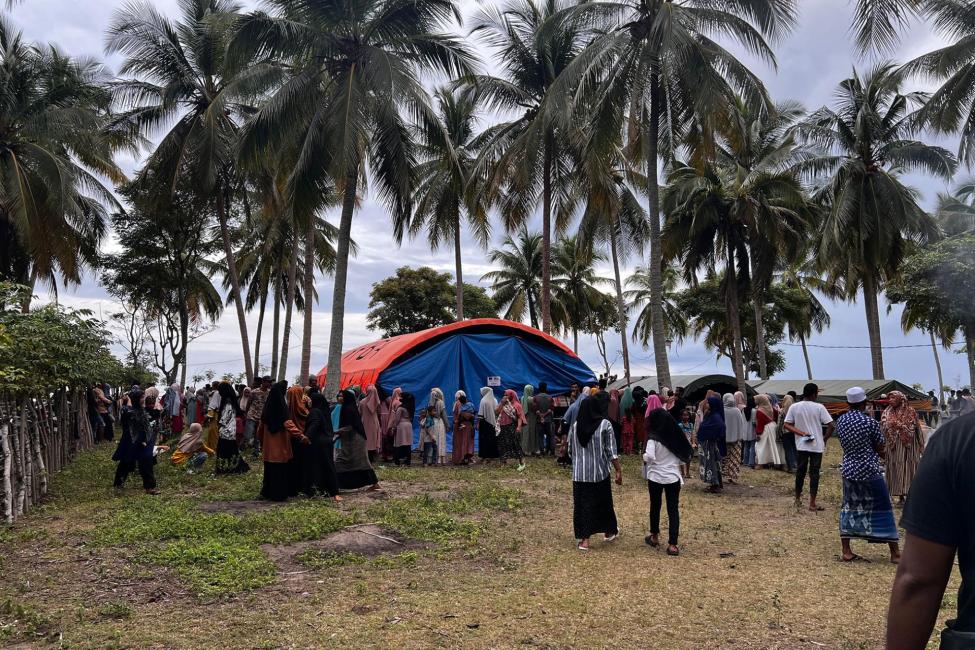-
Who we are
WHO WE AREThe International Organization for Migration (IOM) is part of the United Nations System as the leading inter-governmental organization promoting since 1951 humane and orderly migration for the benefit of all, with 175 member states and a presence in over 100 countries. IOM joined the United Nations system in September 2016.
About
About
IOM Global
IOM Global
-
Our Work
Our WorkAs the leading inter-governmental organization promoting humane and orderly migration, IOM plays a key role to support the achievement of the 2030 Agenda through different areas of intervention that connect both humanitarian assistance and sustainable development.
Cross-cutting (Global)
Cross-cutting (Global)
- Data and Resources
- Take Action
- 2030 Agenda
Free Movement of People a Top Priority, Say West African Nations
Abuja – Free movement of people and goods, and fighting human trafficking should be top policy priorities, members of the Economic Community of West African States (ECOWAS) agreed at talks convened with the support of the International Organization for Migration (IOM), the UN Network for Migration and the African Union.
Three days of consultations in Abuja this week offered the first chance for ECOWAS members to collectively assess progress in implementing the Global Compact for Migration (GCM) objectives and to decide key recommendations to be put to next year's International Migration Review Forum.
Integrated migration governance should be a key goal and Ambrose Dery, Minister of Interior for Ghana, the Chair of ECOWAS Authority of Heads of States and Governments, said it was essential African nations addressed trafficking in persons and its devastating consequences on migrants.
"Vile stories on international media concerning migrant slavery, as well as mistreatment of young African domestic helps in some Gulf States, call for a reflection on appropriate actions to be taken with a view to finding a lasting solution to this persistent problem that leads to the loss of young Africans, without whom the continent cannot build a prosperous and peaceful future,” Dery said. "In Ghana, the contribution of migrants has played a great role in shaping our national development.”
Governments must address the root causes of trafficking and ensure the free movement of people in a safe, orderly and dignified manner. ECOWAS representatives emphasized the need to join forces and align approaches to prevent and counter smuggling of migrants and trafficking in persons to promote rights-based management of migration.
The meeting, which ended Thursday, also heard that policies must be effectively applied by border officials to ease free movement while combatting trafficking in persons.
Aissata Kane, IOM's Senior Regional Adviser for Sub Saharan Africa, said the Global Compact for Migration was a landmark, multilateral document. "It aims to catalyze and boost combined support and assistance for addressing legal and humanitarian challenges of migration and foster its positive social, cultural and economic dividends within and outside the ECOWAS region.”
IOM has been working with all stakeholders at intergovernmental and national levels, as well as within the UN Network for Migration, to promote safe, orderly and dignified free movement of people and economic exchange among ECOWAS Member States.
***
For more information, please contact:
BA Alpha Seydi, Regional Media and Communications IOM Regional Office for West and Central Africa, Tel: +221 764477001, Email: aba@iom.int

